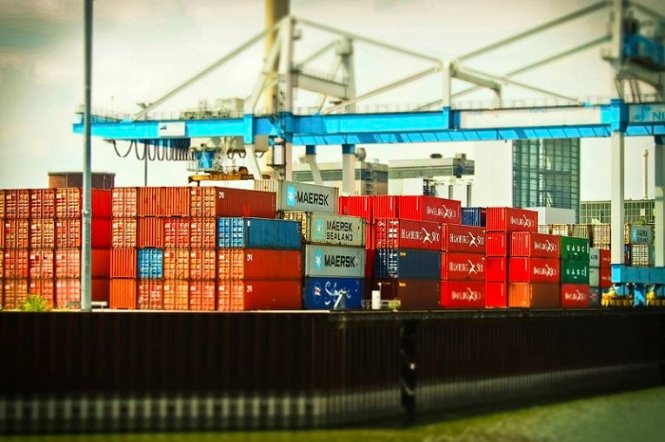The Export Administration Regulations, or EAR, handle all international exports that fall under certain technology-related categories. If your business is going to be exporting any items that fall into the technology category, such as software, then you must either obtain the proper documentation and license from the EAR, or their sister agency, the International Traffic in Arms Regulations, or the ITAR. It is easy to get these two agencies confused because the exports that they both manage are so similar, but here is an overview of how the EAR differs from the ITAR:

Table of Contents
Why was the EAR established?
Run by the Bureau of Industry and Security (BIS), a division of the Department of Commerce, the EAR was established as a measure of national security as well as foreign policy. One type of export that the EAR regulates is dual-use items. What are dual-use exports? Dual-use exports include items that can be used by civilians, but that could also be somehow modified to be used as weapons of mass destruction or even for the military. It’s obvious why these dual-use exports must be strictly regulated because if they weren’t, there would be a great deal more terrorism.
The other types of exports that the EAR manages are those that are considered to be commercial. The list of items controlled by the EAR that are considered commercial is extensive, and in order to determine if your export falls under this category, you need to refer to their manual. Retaining what you read in the manual is important, and if you need clarification, there are agents onsite in the EAR division of the BIS who can answer your questions either in person or by phone.
Determining if you need a license
In many cases, the export of technology-related items that fall under the control of the EAR doesn’t require a license. Despite this fact, you want to ensure that your export isn’t required to have a license, because if it turns out that licensure is required, then you could be faced with some very steep fines and penalties. Determining whether you need a license can be confusing and overwhelming, but it doesn’t have to be. Simply contact the EAR, explain your situation and what you’re shipping overseas, and someone should be able to advise you.
Since the EAR and ITAR are so closely related, it’s important to determine that your export does not fall under the jurisdiction of the ITAR, because if it does, then you need to deal with a different set of regulations and possibly obtain a different license. The good thing is that an export will only fall under one or the other, so you don’t have to deal with simultaneous regulations from the EAR and the ITAR, which could be especially overwhelming and stressful.
Complying with export regulations
Before attempting to export your items for the first time, it is important not to rush through the process, as you need to ensure that you understand what you’re doing. It can be very confusing for someone with no experience in the business, so teaming up with someone who knows all the rules is definitely recommended. For a motivated business owner, it is certainly possible to learn all the specific rules and regulations on your own, but in order to save time and stress, you should seek assistance from an experienced agency or person. At the very least, contact the EAR directly to have your questions answered.
Compliance is a big deal when it comes to exporting, and many medium and larger businesses that regularly deal with the EAR and similar agencies have a dedicated compliance team. This team is expected to remain up-to-date with all the rules and regulations to ensure that all laws and regulations are adhered to. This dramatically minimizes the likelihood of a business failing to comply with the regulations so that the company can avoid fines and penalties. The most common penalty for violating EAR regulations is $10,000, but penalties often increase for continued offenses, which is why compliance is so important.
Hiring a third-party shipper
Although many businesses that export items and ship to the United Military would prefer to manage their own shipping, there is an easier way. By opting to partner with an experienced third-party that specializes in export shipments, and more, a business will no longer be required to perform all the time-consuming steps involved in the process. When choosing a third-party shipper, it’s important to look for one that possesses certain qualities. First of all, you want a shipper that has an adequate amount of experience in the business.
In addition to experience, you should look for a shipper who has an excellent track record for securely packaging shipments and ensuring that all exports arrive at their expected destinations on schedule. Furthermore, the shipper that you choose should provide excellent customer service and have the ability to answer any and all questions that you might have at any given time.
Why choose Kaiser & Johnson?
Kaiser & Johnson has extensive experience with the EAR, ITAR, and other government agencies involved in exporting, importing, and more. This third-party provider of export packaging exceeds all of the requirements that you would expect from a top-notch shipper, and they have been providing these types of services and more since the mid-1990s. Kaiser & Johnson deals with all shipments except those that contain potentially hazardous materials. Otherwise, they can make life easier for any business that partners with them.
Give Kaiser & Johnson a call today for a quote, and you might just be surprised at how affordable it is to partner with them. Even if you only opt to purchase custom crates, pallets, and other exporting materials from them, you can still save yourself a great deal of time and stress. So, don’t hesitate to contact them any longer.




